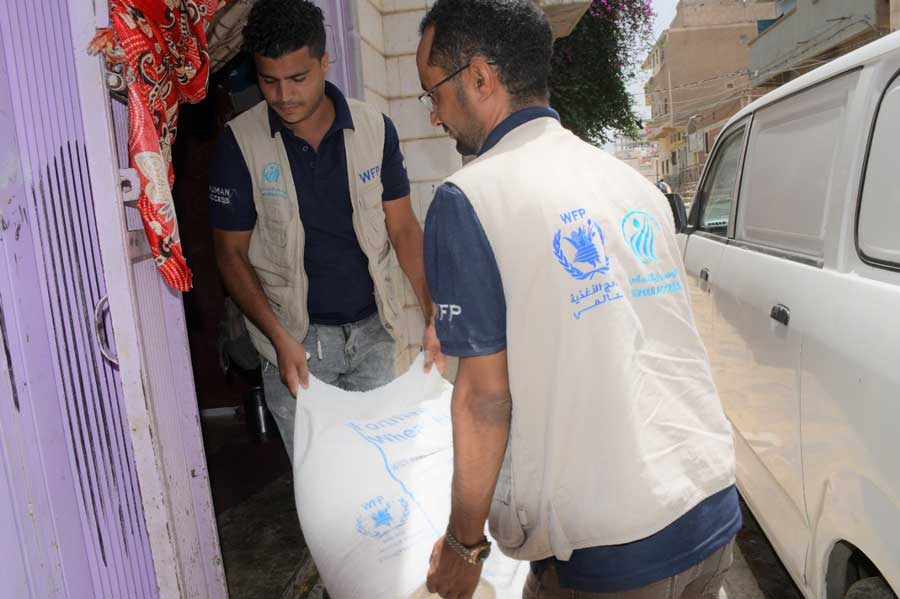Wasmiya.. a displaced woman who saw light of the GFA project in reality

Food insecurity is one of the major challenges in Yemen. According to recent UN data, the number of Yemenis facing food insecurity has risen to four million, in light of the continuous economic deterioration and the rise in food prices in a way that exceeds the ability of the vulnerable groups.
Forcibly displaced people in conflict zones are among the most vulnerable groups who face real suffering. They suffer from food insecurity, unable to obtain the most basic services, and need a strong humanitarian response to help them build a new life in the communities where they have sought safety.
Among them is a displaced woman, Wasmiya Abdulqawi, 30 years old, who was displaced with her husband and three children from Al-Qabbaita district in Lahg governorate to Sala district in the Taiz governorate, fleeing the armed conflict.
Her situation is pathetic in a country that lacks peace, and in a city experiencing a serious situation of food insecurity.
A family needs to restore hope
Wasmiya lives with her family in a one-room shop. She has a girl with severe vision impairment who is more likely to become blind. Her husband suffers from asthma and does not have a stable source of income. Rather, he works for a daily wage in light of the collapse of the labor market and low wages amid huge needs.
Due to their harsh conditions, the family is deprived of adequate food, which means an increased risk of disease. Additionally, children who lack quality food will be stunted, as they do not have the nutrients required for growth, along with other life threats facing this most vulnerable group of people.
Because HUMAN ACCESS is committed to helping people in need, including those who have had to leave their homes to rebuild their lives in a dignified and safe manner, it was able to reach this family through the GFA Food Assistance Project, which is funded by the World Food Program (WFP). Fortunately, and with the initiative of this program, the family was able to restore hope.
A completely different situation than before
Wasmiya obtained a food basket that was delivered periodically, consisting of wheat flour, cooking oil and legumes, and sometimes rice and dates were added to it. This food basket was a successful way to improve the livelihood of this displaced family and prevent it from slipping into starvation.
In an interview with Wasmiya, she said: "I felt a big difference in my life when I had my daily food. My situation now is completely different than before. I felt safe and that a door of the blessed heavens has opened for me."
She thanked HUMAN ACCESS and the World Food Program for the food aid project that had made their situation less difficult.
Wasmiya and other beneficiaries like her have all the hope that this important humanitarian project continues to ensure that many of the Yemeni families targeted by the project maintain a certain level of decent living.
This is particularly important given that food insecurity is growing increasingly severe in most Yemeni districts.
This is particularly important given that food insecurity is increasingly exacerbated in most Yemeni districts.


